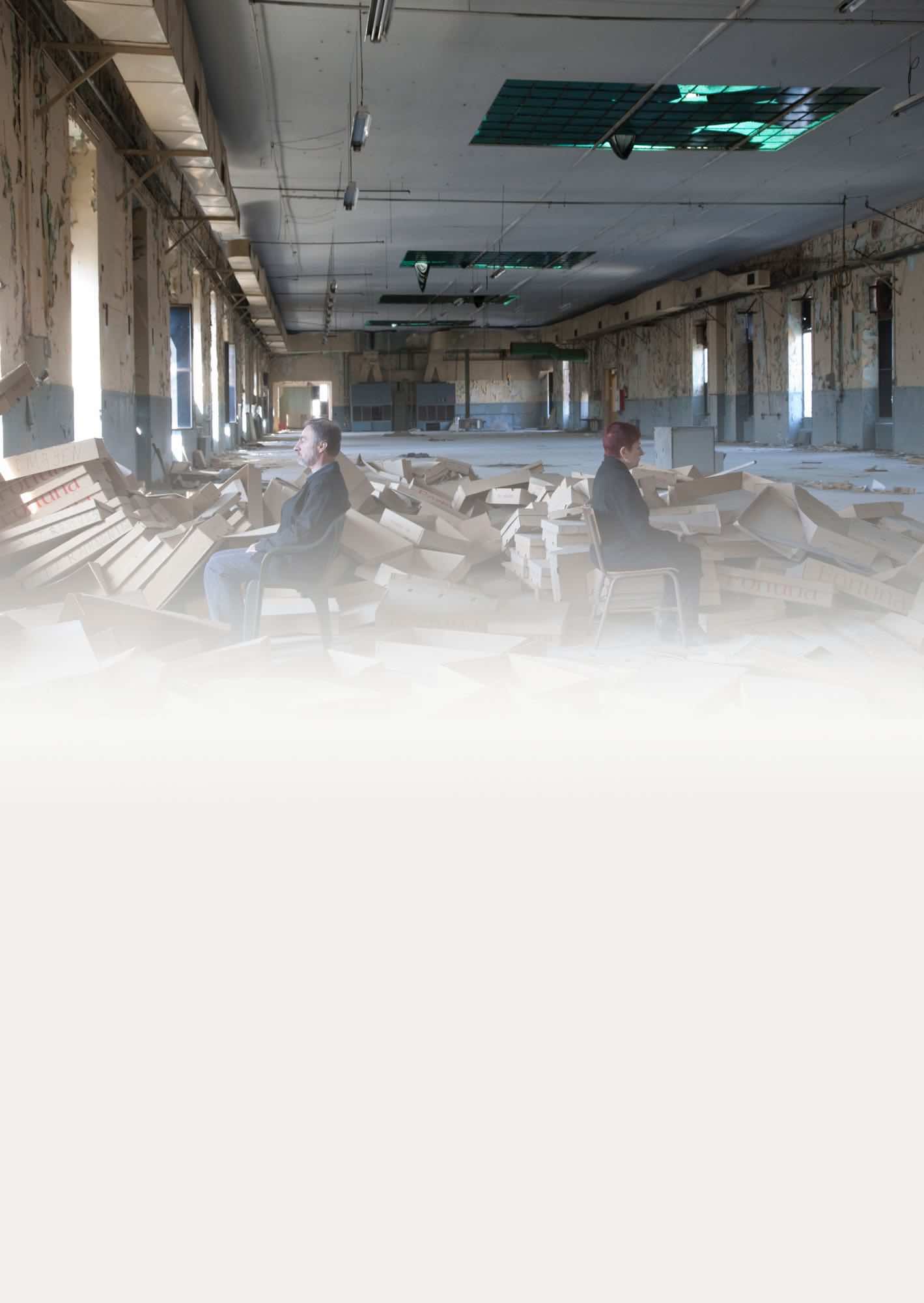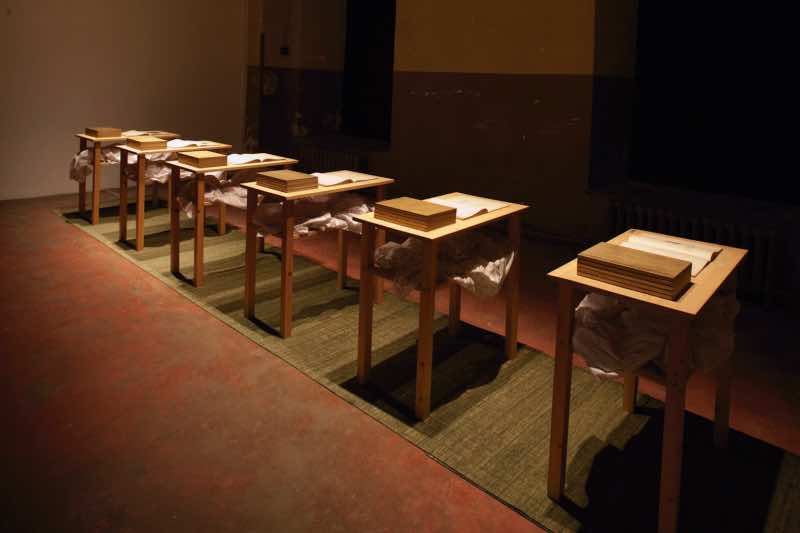En la parte sonora de esta obra, que fue realizada en 1991 para la instalación Force In, se recuerdan nombres de mujeres y hombres que vivieron entre 1492 y 1992, que han sido relevantes en el arte, la ciencia, la literatura y el pensamiento. Ese collage sonoro de citas, fragmentos de conversaciones y secuencias sonoras diversas incluye también la lectura correlativa de años entre esas dos fechas.
Frente a la pluralidad de voces y sonidos de la memoria oral, otra narrativa fragmentada está contenida en una colección de libros de artista apilados sobre seis mesas de madera. Escritos ilegibles y autocensurados representan en las cajoneras de las mesas aquello que no fue expresado pero que sigue latente, creando interferencias en la memoria del tiempo y en el espacio de la lectura.
La obra genera en su conjunto una rica trama de significados atravesados por versos del poema de Bertolt Brecht Preguntas de un obrero ante un libro. Es otra manera de revelar la tensión entre los grandes acontecimientos de la Historia y sus protagonistas anónimos.
This installation is made up of a series of thirty-six books arranged on six tables and a polyphony of voices, rich in textures and sound resources, that recite the numbers corresponding to each of the five hundred years in four languages. Simultaneously, other voices speak the names of remarkable men and women from the arts, the sciences and philosophy, compiling a sound collage interwoven with quotations and fragments of conversations and everyday sounds. Each person who is named has made a contribution to knowledge that has allowed history to evolve; the majority of these contributions caused disruptions and discontinuities, generating mutations.
In itself, the work constitutes a dense fabric of meanings shot through with verses from the poem Questions from a Worker who Reads by Bertolt Brecht. The poem reclaims the identity of the anonymous men and women who accompanied leaders in their victories and their defeats: the people who built their cities, provided their food and paid their expenses. Behind the questions posed in the poem is revealed a critique of hegemonic history written from the perspective of the conquerors. The poem suggests that it is urgent to recover the memory of those who supported the protagonists of events in history, to which a greater diversity of voices and experiences should be added.
Here, the diversity becomes apparent from the names recited and the noises that indicate anonymous, everyday life. The sounds form part of the polyphony of the Habitación de lectura 1492-1992 and they blend in with the illegible scribbles that appear on the half-open boxes under the tables. Overcoming the prevailing media noise, the art of Concha Jerez and José Iges generates an intermedia environment that transforms this same noise into a space for reflecting on the patterns of communication that rule us.
http://expandedradio.net/1999-hbaitacion-de-lectura-12921992-intermedia-piece/


